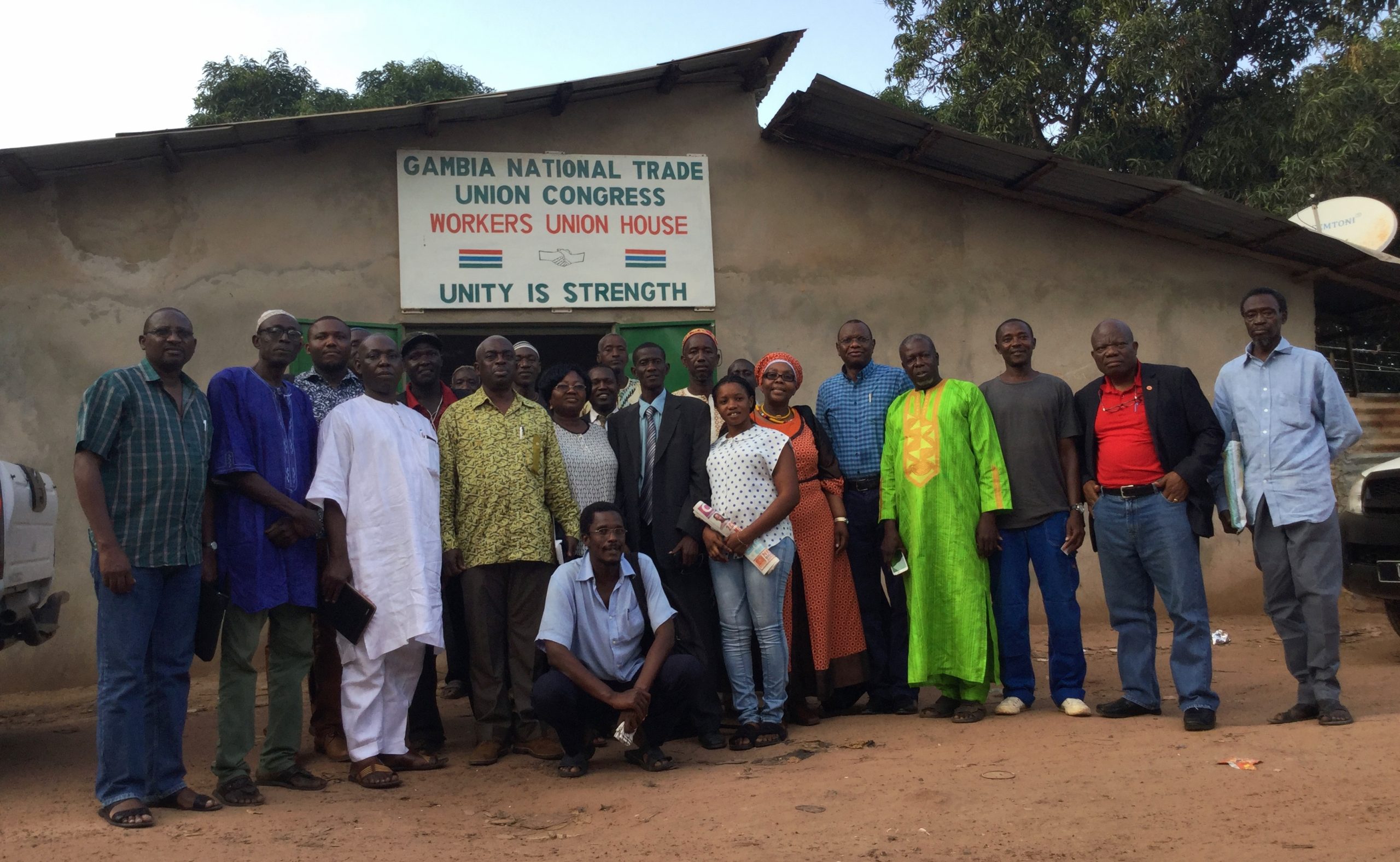Gambiaj.com – (Geneva, Switzerland) – The Organisation of Trade Unions of West Africa (OTUWA) has called on the International Labour Organisation (ILO) to play a more active role in amplifying the voices of workers’ representatives in The Gambia and Liberia, amid ongoing challenges to trade union freedoms in both countries.
During a courtesy visit to ILO Director-General Gilbert Houngbo in Geneva, OTUWA’s Acting President, Sophie Kourouma, highlighted what she described as “arbitrary maltreatment and abuse” faced by labor leaders in both nations.
She emphasized that authorities in The Gambia and Liberia continue to place deliberate obstacles in the way of public sector unionization and the broader consolidation of trade unionism.
Specifically addressing the situation in The Gambia, Kourouma pointed to the long-lasting impact of former President Yahya Jammeh’s regime, which she said “significantly weakened trade union cohesion” in the country.
However, she noted that efforts to rebuild the movement have been ongoing, in collaboration with the International Trade Union Confederation (ITUC), its African branch ITUC-Africa, and other labor stakeholders.
Kourouma appealed to the ILO chief for direct intervention, stressing that such action would support the establishment of an inclusive Labor Centre in The Gambia – one that guarantees freedom of association for workers in both the public and private sectors.
“There is now a more favorable environment in The Gambia,” she said, citing the appointment of Baboucarr Ousmaila Joof—who oversees Trade, Industry, Regional Integration, and Employment—as a promising development.
“Minister Joof hails from the ranks of the Gambia Teachers Union, the country’s largest trade union, which gives us hope for more worker-friendly reforms,” she added.
In response, ILO Director-General Gilbert Houngbo acknowledged the concerns raised by OTUWA as legitimate. He assured the delegation that his office would act on matters within its mandate and engage relevant national authorities on issues requiring state-level intervention.
The meeting underscores growing regional concern about labor rights in West Africa and reflects a push for greater institutional support for trade unions in fragile democratic settings.










